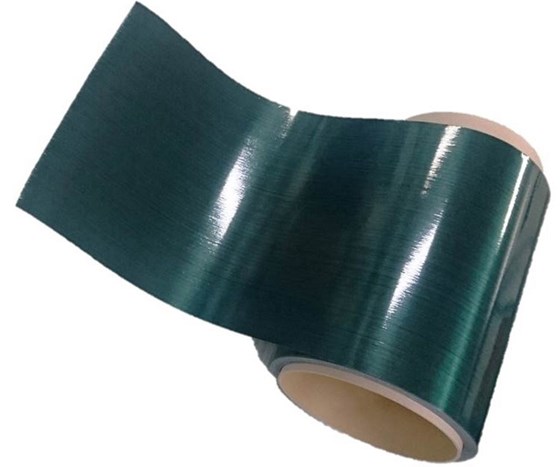The surface of the CNT is specially treated and its structural elements disperse equally when Toho Tenax’s carbon fiber is impregnated with matrix resin containing the CNT. The hybrid combination of carbon fiber and CNT realizes a superior CFRP that offers improved tensile strength and shock resistance. The CFRP also is extra durable because the carbon fiber and matrix resin do not peel away from each other thanks to the CNT’s balanced dispersion.
The Teijin Group is accelerating its development of its new high-tensile, highly shock-resistant prepreg for high-end applications in the sports, leisure and aircraft fields, where weight reduction and high functionality are especially critical.
Since CFRP is used in fields ranging from aircraft and automobiles to infrastructure and leisure, its prescribed properties must differ widely depending on the application. To address these specific demands, Teijin is developing technology for various combinations of carbon fiber and matrix resin and for specific processing needs.
Carbon fiber sheet and matrix resin, however, tend to peel away from each other when molded CFRP products are subjected to strong impact, leading to decreased strength and tension.
Technologies have been pursued to better integrate carbon fiber and CNT, but until now the cohesiveness of CNT elements had prevented them from dispersing equally in the matrix resin, resulting in prepregs of unstable quality.

